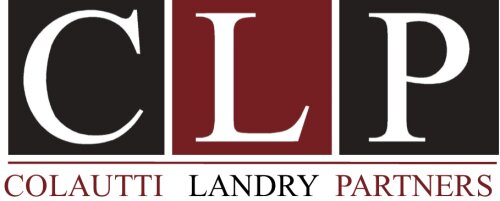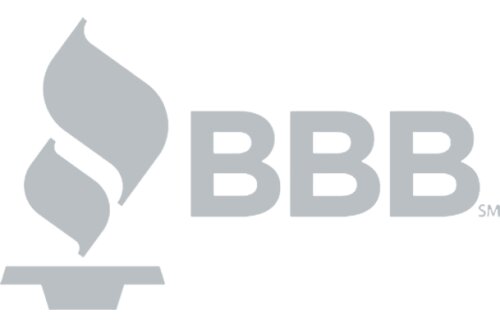Best Foreclosure Lawyers in Windsor
Share your needs with us, get contacted by law firms.
Free. Takes 2 min.
Free Guide to Hiring a Real Estate Lawyer
List of the best lawyers in Windsor, Canada
About Foreclosure Law in Windsor, Canada
Foreclosure is a legal process that allows a lender to take possession of a property when a borrower defaults on their mortgage payments. In Windsor, Ontario, foreclosures are less common than "power of sale" proceedings, but they do occur in certain circumstances. Foreclosure legally transfers the full ownership of a property to the lender, extinguishing the borrower's rights entirely once the process is complete. The process is governed by both federal and provincial law, and it can be complex due to strict rules and procedures designed to protect both lenders and borrowers.
Why You May Need a Lawyer
People facing foreclosure or involved in foreclosure proceedings may need legal advice for a range of reasons. Here are some common situations:
- You have fallen behind on your mortgage and have received a notice of default or foreclosure.
- You are unsure about your rights and obligations regarding your mortgage contract.
- You wish to negotiate a settlement, repayment plan, or explore alternatives such as refinancing or selling the property.
- You suspect an error or misconduct by your lender or mortgage servicer.
- You are a lender seeking to initiate or defend a foreclosure action.
- You are facing eviction following a foreclosure.
A lawyer with experience in real estate or foreclosure law can help protect your interests, ensure proper procedures are followed, and explore options to resolve the situation.
Local Laws Overview
In Windsor, Ontario, property foreclosure is governed by both the federal Bank Act and provincial laws, particularly the Ontario Mortgages Act. Two main remedies are available to lenders in Ontario: power of sale and foreclosure.
- Power of Sale: The most common remedy, allowing lenders to sell the property to recover the debt.
- Foreclosure: Less common, this process enables lenders to take full title to the property, extinguishing all interests of the borrower and other parties involved.
The foreclosure process in Ontario is conducted through the courts and tends to be lengthier and more complex than a power of sale. The courts allow time for the borrower to rectify the default (known as "redeeming" the mortgage) before the lender can take final ownership. Throughout this process, strict timelines, notifications, and procedural requirements must be observed to ensure fairness.
Unique to Ontario, the borrower typically loses all rights to the property after a foreclosure judgment, and the lender does not need to return any surplus value if the property is worth more than the mortgage debt. For this reason, many lenders prefer power of sale, which offers a faster resolution and fewer risks.
Other relevant laws and provisions in Windsor may relate to tenant rights, eviction procedures, and municipal property requirements, so professional legal advice is recommended.
Frequently Asked Questions
What is the difference between foreclosure and power of sale?
Power of sale allows the lender to sell the property to recover the debt, returning any surplus to the borrower. Foreclosure, on the other hand, gives full ownership of the property to the lender, extinguishing the borrower's rights entirely.
How long does the foreclosure process take in Windsor, Ontario?
Foreclosure is a lengthy legal process that can take several months to over a year, depending on the court’s schedule and the specifics of the case.
Can I stop foreclosure once it has started?
Yes, you may be able to stop foreclosure by paying off the arrears, negotiating with your lender, or seeking legal options such as bankruptcy. The sooner you act, the more options you will likely have.
What happens to me if my home is foreclosed?
If foreclosure is completed, you lose any legal claim to your property. You may also be required to vacate the premises, and your credit rating will be negatively impacted.
Does the lender get to keep any profit if my property is worth more than my mortgage?
Yes. In a foreclosure scenario in Ontario, any surplus value remains with the lender. In a power of sale, surplus funds after debt repayment return to the borrower.
What are my rights as a tenant if the property I live in is under foreclosure?
If you are a tenant, Ontario’s Residential Tenancies Act offers certain protections. Your lease may continue, or you may be entitled to notice and time to move, depending on the circumstances.
Can I negotiate with my lender after receiving a foreclosure notice?
Yes. Many lenders are willing to negotiate repayment plans, loan modifications, or settlement options, especially if you act quickly and communicate openly.
Should I move out as soon as I receive a foreclosure notice?
No, receiving a notice doesn't mean you must leave immediately. The process takes time and you have legal rights that should be explored with a lawyer.
Will foreclosure affect my credit score?
Yes, a foreclosure will have a significant negative impact on your credit score and may affect your ability to borrow in the future.
What should I do first if I am facing foreclosure?
Contact your lender to discuss your situation and consult a lawyer to discuss your rights and options as soon as possible. Acting quickly maximizes your options for resolving the issue.
Additional Resources
Here are helpful resources and organizations for those seeking advice on foreclosure in Windsor, Ontario:
- Legal Aid Ontario: Provides free or low-cost legal assistance to eligible clients dealing with foreclosure and related issues.
- Community Legal Clinic: Windsor’s legal clinics can assist with housing, tenant rights, and mortgage problems.
- Ontario Ministry of the Attorney General: Offers information on court procedures and relevant laws.
- Canada Mortgage and Housing Corporation (CMHC): Provides educational materials and support programs for homeowners in financial difficulty.
- Financial Consumer Agency of Canada: Offers guides on mortgages, foreclosures, and dealing with financial distress.
Next Steps
If you find yourself facing possible foreclosure in Windsor, the following steps may help you protect your interests:
- Review your mortgage documents and any communication from your lender carefully.
- Contact your lender immediately to discuss your situation and seek options for payment arrangements or alternatives.
- Document all communications with your lender and keep records of your mortgage payments and related correspondence.
- Reach out to a local lawyer with expertise in foreclosure or real estate law for personalized legal advice. Legal clinics and Legal Aid Ontario may be able to assist if you have limited resources.
- Explore resources provided by governmental agencies and local organizations for practical guidance and support.
- Remain aware of important deadlines to avoid missing critical opportunities to address the issue.
Seeking legal advice early increases your chances of finding the best possible solution to your foreclosure concerns. Being informed and proactive is the most effective way to protect your home and financial well-being.
Lawzana helps you find the best lawyers and law firms in Windsor through a curated and pre-screened list of qualified legal professionals. Our platform offers rankings and detailed profiles of attorneys and law firms, allowing you to compare based on practice areas, including Foreclosure, experience, and client feedback.
Each profile includes a description of the firm's areas of practice, client reviews, team members and partners, year of establishment, spoken languages, office locations, contact information, social media presence, and any published articles or resources. Most firms on our platform speak English and are experienced in both local and international legal matters.
Get a quote from top-rated law firms in Windsor, Canada — quickly, securely, and without unnecessary hassle.
Disclaimer:
The information provided on this page is for general informational purposes only and does not constitute legal advice. While we strive to ensure the accuracy and relevance of the content, legal information may change over time, and interpretations of the law can vary. You should always consult with a qualified legal professional for advice specific to your situation.
We disclaim all liability for actions taken or not taken based on the content of this page. If you believe any information is incorrect or outdated, please contact us, and we will review and update it where appropriate.












